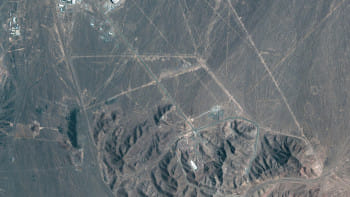'Islamic State': Let it not be a red herring
There is certainly a deep conspiracy against this country going by the series of events that we have witnessed in the last one month. Of course the killings had to be well planned. No hit man would embark on his mission without a thorough planning. But a well planned killing does not necessarily indicate the existence of a conspiracy. One must establish specific motives to pinpoint the culprits and their aim. The million dollar question is: who are actually behind the killings and what might their purpose be.
Now that four persons have been arrested in this connection, the motives should become clear. If only one could identify the motives then perhaps one could put one's finger on the entire matter apart from identifying the people behind these incidents. But this is where all the problems reside. Let me explain.
If one were to go by the destabilisation theory, the motive, to make political gains, may be convincing enough to conclude that there is a political angle to the killings. And that would restrict our focus on internal actors only. But if one analyses the targets, one would find that the victims/targets were of different character. Two were foreigners (one had reportedly converted to Islam and was buried following Islamic ritual), two were religious figures, one among them a Christian cleric and the other a follower of a Sufi order. And this sort of killings one had also witnessed in the past. The killers of the bloggers, one might stress, were of the same inclination and disposition. And the latest target was the Ashura observance gathering that is generally, and perhaps wrongly, associated with Shias only.
Would one therefore be remiss to suggest that the perpetrators were of different hue and had different motivations? Is it a plausible argument that those behind the foreigners' killing were moved by considerations quite different from the ones behind the attack and killing of the religious personalities and the bloggers; that the latter exploited the current uncertain situation to their own ends using the alleged IS connection to deflect attention?
One could also argue that the perpetrators are one and the same, the aim being to destabilise the country and reap benefits, political and otherwise. Therefore, they wanted to exploit as many situations as possible to stimulate a law and order situation, that these two groups hold a common ideology and a common purpose and have coalesced in the killings.
In this context it may be appropriate to analyse the likely involvement of political parties, as some ruling party members are alleging, in the killings. It does not need a genius to say that it would be suicidal for an established political party, with substantial following, to resort to a strategy that does not guarantee its success to power but instead holds the recipe for a disastrous outcome for the country, in which it would also not come out unscathed. The party should have learnt a lesson from the violence it perpetrated early this year. However, one cannot put it past a party that is politically on the throes of extinction, having had its registration rescinded by the election commission, to resort to a line of action that would generate exactly such an outcome. They feel that uncertain situation in the country may help prolong its political existence and these are acts of desperation prodded by survival instinct.
But all the foregoing arguments go haywire with the alleged involvement of the IS in the matter. Yes, the IS seeks real estate to set up so called Islamic State. At present it controls an area larger than the UK, and has a large number of foot soldiers on ground. And although it aspires to territory unlike the Al-Qaeda, one wonders whether it has the manpower to move beyond the region that it holds now. And although there may be extremist elements in Bangladesh who are ideologically well disposed towards IS, is it likely to outsource its activity to groups that are not organically linked to it?
Therefore, the quick 'acknowledgment' of the killings by the IS, the method of which does not fit the IS footprint, raises doubts about the veracity of the post.
Let the IS issue not be a red herring. As we have said previously, the extremist organisation should not prevail over the minds of the investigators. They should focus on identifying the planners. If an IS link is found in the process that's ok, if not, so much the better. An open mind leads to sound conclusions.
The author is Associate Editor, The Daily Star.

 For all latest news, follow The Daily Star's Google News channel.
For all latest news, follow The Daily Star's Google News channel. 



Comments